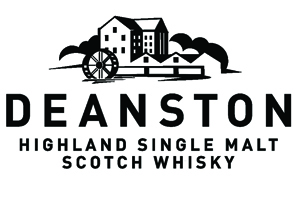Crime Book of the Year

A stellar shortlist has been announced for the Deanston Scottish Crime Book of the Year.
Some of the biggest names in Scottish crime writing have been joined by a rising star of the genre to compete for the prestigious prize. The winner will be announced at a gala dinner during the festival on Saturday 14th September, and presented with a trophy and a cheque for £1000.
The 2013 shortlisted titles are:
- Ann Cleeves – Dead Water
- Gordon Ferris – Pilgrim Soul
- Malcolm MacKay – How a Gunman Says Goodbye
- Denise Mina – The Red Road
- Val McDermid – The Vanishing Point
- Ian Rankin – Standing in Another Man’s Grave
This exceptional list demonstrates the wealth and diversity of contemporary Scottish crime writing, featuring writers at the top of the game not just in Scotland but across the globe. However, new talent is equally vital and the list celebrates this with emerging writer, Malcolm MacKay.
Key themes of this year’s shortlisted books include the author’s use of the past. Titles such as Denise Mina’s, The Red Road and Ian Rankin’s, Standing in Another Man’s Grave explore how past events have a resonance to the present day.
There is also a great diversity of locations within the final six. Whilst cities are the heartland of much crime writing, Ann Cleeves’ Dead Water is set in the Shetland isles, Gordon Ferris’ Pilgrim Soul travels from Glasgow to Germany, and much of The Vanishing Point by Val McDermid is set in the United States.
The award provides Scottish crime writing with recognition and aims to raise the profile and prestige of the genre as a whole. Scottish roots are a must for competition applications: authors must either be born in Scotland, live there or set their books there. Crime fiction, non-fiction and anthologies of short crime stories are all eligible. Charles Cumming claimed the award in 2012 with A Foreign Country.
Entries were whittled down with the expert help of staff from Waterstones, then handed over to our judging panel: former Scotsman editor Magnus Linklater, Shari Low of the Daily Record and Baillie Liz Cameron of Glasgow City Council.
Deanston Distillery’s support of Bloody Scotland fits well with its history and bloody past, including connections to the infamous murderers Burke and Hare. Originally established as a cotton mill in the 18th century, Deanston was transformed into a whisky distillery in 1966 and now produces award-winning hand-made Highland single malt.
Dine with the with the award winner
Join us from 7:30pm in the Golden Lion Hotel in Stirling as we announce the winner of the Deanston Scottish Crime Book of the Year award 2013.
The winner of this year’s award will be announced shortly before a fantastic three-course meal where you can eat, drink and be merry while meeting a selection of your favourite crime writers who will be hosting each table and mingling with guests.
Tickets are now on sale priced at £39.50 per person, with the ticket price including a three-course meal.
Click here for further details and to book.
Refined, restrained evil
Some early morning evil never goes amiss, and what better way to start the day than with Denise Mina and Peter James comparing evil with Alan Riach and each other?
After brief introductions from Alan on who they are (and who needs that?), they both read from their books. Peter said he's famous for short chapters, so would read chapter one from his new book, which took all of ten seconds. On that basis Denise allowed him another 19 chapters.
Denise checked whether there were any children in the audience, but although the coast appeared to be clear she still stopped reading as she got to the orgy, which was most disappointing.
They discussed where they draw the line, because everyone is different, and also investigated what counts as rape. The law says one thing, but morally you might not agree.
Peter has experience of Broadmoor, but only as a visitor, and on inspection it seems as if certain tabloids might actually count as more evil than the worst psychopaths. Evil is an unwillingness to understand.
Asked whether it's important for good to conquer evil, it appears this is not always necessary, and many readers prefer realism to happiness. Sock puppets turned up once more, and we found out that authors write their own blurbs, telling the world how excellent they are, much in same vein as the infamous puppets.
Not knowing how a book will end is something Denise experiences every time. Peter knows where he's going to end up, but also knows he will change his mind.
Post by Ann Giles


